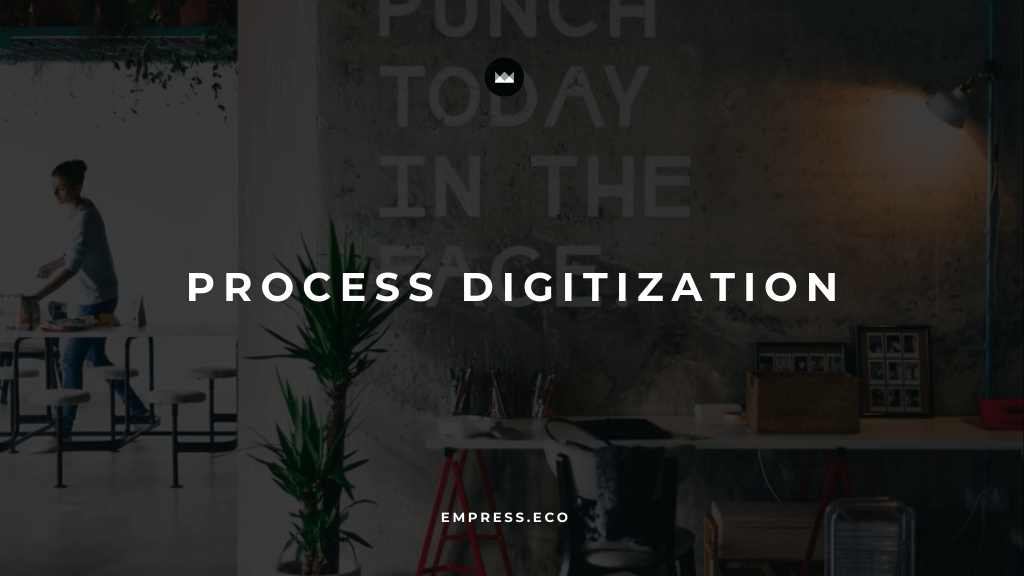As you navigate today's competitive business landscape, understand that success hinges on more than just selling products or services. The key is to forge meaningful relationships and generate a positive impact within the community you serve. This is where active community engagement shines as a strategic beacon, leading businesses like yours to not only amplify your influence but also to drive social transformation. The concept transcends the boundaries of mere buzzwords and becomes a catalyst for both growth and societal contributions.
By participating in community initiatives, your employees can enhance a variety of skills. From volunteering to spearheading social projects, such experiences bolster leadership, communication, problem-solving, and interpersonal abilities. These skills are invaluable, benefiting personal development and lifting your business's performance and productivity. Moreover, as a business, your involvement in the community positions you as a leader of social change. Through sustainable practices and local development contributions, you don't just respond to change—you create it. This fortifies your corporate social responsibility profile, elevating your reputation and brand image in the eyes of stakeholders and consumers alike.
Strategic Community Engagement
In the realm of business, strategic community engagement is a deliberate effort to build and nurture mutually beneficial relationships with the community. This approach serves as a cornerstone for not just expanding your influence, but also for establishing your brand as a leader in social responsibility and transformation.
Cultivating Business-Community Relationships
To forge strong business-community relationships, you must actively listen to community needs and respond genuinely. This involves creating dialogues with community leaders and supporting causes that align with your business values and resonate with the community. By organizing and participating in community events or local initiatives, you actively showcase your commitment and build trust.
Corporate Social Responsibility
Your corporate social responsibility (CSR) initiatives should reflect a deep understanding of the local context and address real-world issues. Implement sustainable practices that benefit both the environment and the community, such as reducing your carbon footprint or supporting local education. This not only strengthens your brand's authority but also demonstrates a long-term investment in the community's welfare.
Skill Development through Community Involvement
In community involvement, you have the unique opportunity to develop a myriad of skills that are directly transferable to your professional life. Every project you participate in and every interaction within the community can sharpen your abilities and equip you with new competencies.
Leadership and Communication
- Leadership: Through community involvement, you enhance your leadership skills by organizing and guiding volunteers, delegating tasks, and inspiring groups towards a common goal. Participation in community development projects pushes you to take charge and fosters decisiveness.
- Example:
- Organizing a community clean-up requires setting clear objectives, planning logistics, and ensuring the team's motivation throughout the event.
- Example:
- Communication: Your communication skills are indispensable when engaging communities. You learn to articulate clear messages, listen actively, and convey ideas effectively to a diverse group of individuals. This helps build trust and drives collaboration.
- Example:
- Presenting a project at a community meeting involves clear expression of ideas and attentive listening to feedback to ensure mutual understanding and buy-in.
- Example:
Problem-Solving and Interpersonal Skills
- Problem-Solving: Engaging with a community means facing real-world challenges that demand creative solutions. You’re often required to think on your feet and adapt to changing circumstances, which sharpens your problem-solving abilities.
- Example:
- When a planned event faces a sudden venue change, devising a quick and effective solution helps in averting disruption.
- Example:
- Interpersonal Skills: Your work in communities hones your interpersonal skills by requiring you to work with people from different backgrounds and viewpoints. Managing disputes and finding common ground is key to successful engagement.
- Example:
- Mediating a disagreement between volunteer groups encourages diplomacy and hones conflict-resolution skills.
- Example:
By actively participating in community initiatives, you refine a host of valuable skills. Leadership and communication enable you to effectively guide teams and convey messages, while problem-solving and interpersonal skills allow you to navigate the complexities of collaboration within diverse groups.
Advocating Social Transformation
When you advocate for social transformation within the business sector, you embrace a leadership role that goes beyond profit-making. It's about driving positive change in the communities your business touches, often leading to a reinforced social license to operate.
Understanding the Impact: By diving into community issues, you highlight values that resonate with your clientele and workforce alike. You're not just selling a product or service; you're standing up for principles. For example, championing sustainability can inspire eco-friendly initiatives that resonate with your audience.
Strategic Partnerships: Aligning with organizations that specialize in community development can give your social transformation efforts a substantial boost. They can provide the expertise and frameworks necessary to ensure your efforts are meaningful and effective.
- Leadership Opportunities: Providing platforms for employees to lead and manage social initiatives showcases your commitment to personal and professional development, fostering a culture that values societal progress.
- Community Focused Initiatives: Tailor your corporate social responsibility to address local needs. This boosts relevance and impact through initiatives like community clean-ups or educational programs.
Educate and Engage: Transparency is key. Share your mission and progress through stories that detail the journey of your community work. Use social media strategically to amplify your message and engage with a broader audience.
Measure and Reflect: Establish clear metrics to assess the impact of your community engagement initiatives. Are they meeting the intended social goals? Adjust and refine strategies based on feedback and outcomes to strengthen your impact.
By placing social transformation at your operational core, you not only foster a healthier society but also position yourself as a forward-thinking, responsible brand. Your actions can encourage other businesses to follow suit, amplifying the collective impact on social transformation.
Boosting Brand Visibility and Awareness
Active community engagement is a direct route to increase your brand visibility and awareness. When you invest time and resources into your community, you're seen as a proactive contributor, which builds a positive brand image. This engagement can be leveraged through various channels, enhancing your visibility in the eyes of consumers and stakeholders alike.
- Visibility through Volunteering: By participating in community events and sponsoring local initiatives, your brand gains exposure. This kind of involvement often receives local media coverage, putting your brand in the spotlight.
- Social Media Engagement: Sharing your community activities on social media can amplify your reach. Use high-quality images and hashtags to increase the visibility of your posts, and interact with followers to establish a connection with your audience.
- Partnerships: Collaborate with other organizations that hold a strong community presence. These strategic partnerships can open up new networks and consumer bases, thus broadening your visibility.
- Employee Advocacy: Encourage employees to share their community involvement on their personal social media channels. This not only shows your brand's human side but also extends your reach through their individual networks.
Remember to track your engagement and visibility efforts to hone in on what works best for increasing your brand's presence. Your approach should be structured but adaptable, always looking for innovative ways to present your brand positively within the community. Through community engagement, your brand's visibility and awareness will grow, fostering stronger connections and loyalty with your target audience.
Enhancing Employee Motivation
Actively engaging your employees through community involvement can significantly boost their motivation. When you allow your team members to participate in community projects, they often feel more connected to their work and the values your company represents. Here are ways to enhance employee motivation through community engagement:
- Set Clear Goals: Establish specific, measurable goals for community projects. Ensure these objectives align with your company's values and give your employees a purpose beyond their day-to-day tasks.
- Recognition: Acknowledge and celebrate contributions your employees make to community initiatives. Public recognition can be a powerful motivator.
- Volunteering Opportunities: Provide a variety of volunteering options that cater to different interests. Flexibility ensures every employee can find a cause they are passionate about, fostering intrinsic motivation.
- Skills-Based Volunteering: Encourage employees to utilize their professional skills for community service. This not only benefits the community but allows employees to gain a sense of fulfillment and competence.
- Leadership Roles: Offer chances for employees to take on leadership positions in community projects. This helps them to grow personally and professionally, which can translate into increased motivation at work.
- Team Collaboration: Promote team volunteering activities. Building camaraderie in a non-work environment can strengthen work relationships and lead to a more dynamic team spirit.
By investing in community engagement, you're investing in your employees. It deepens their connection to your company and increases their motivation to contribute to both business and community success.
Discovering Growth Opportunities
When you engage with your community, you're not just building goodwill; you're also uncovering new avenues for growth. Here’s how engaging with your community can lead to discovering these opportunities:
- Market Insights: By listening to community feedback, you gain direct insight into what is important to them. This helps you identify unmet needs and areas for potential expansion that align with your business offerings.
- Networking: Community events are a hotspot for networking. They provide an opportunity for you to meet local leaders, non-profit heads, and potential collaborators who can offer new perspectives and business opportunities.
- Innovation: When you're involved with community projects, you often encounter unique challenges that foster innovation within your team. The solutions developed can turn into marketable products or services.
- Customer Loyalty: Community-engaged companies often enjoy a loyal customer base. When you support the community, the community supports you in return, leading to sustained business growth.
- Partnerships: Community engagement opens the door to partnerships with other organizations that share similar values. These collaborations can lead to joint ventures and new business endeavors.
By embedding yourself into the community fabric, you not only make a positive impact but also set your business up for long-term success. Keep your eyes and ears open; sometimes the next big opportunity is waiting where you least expect it.



